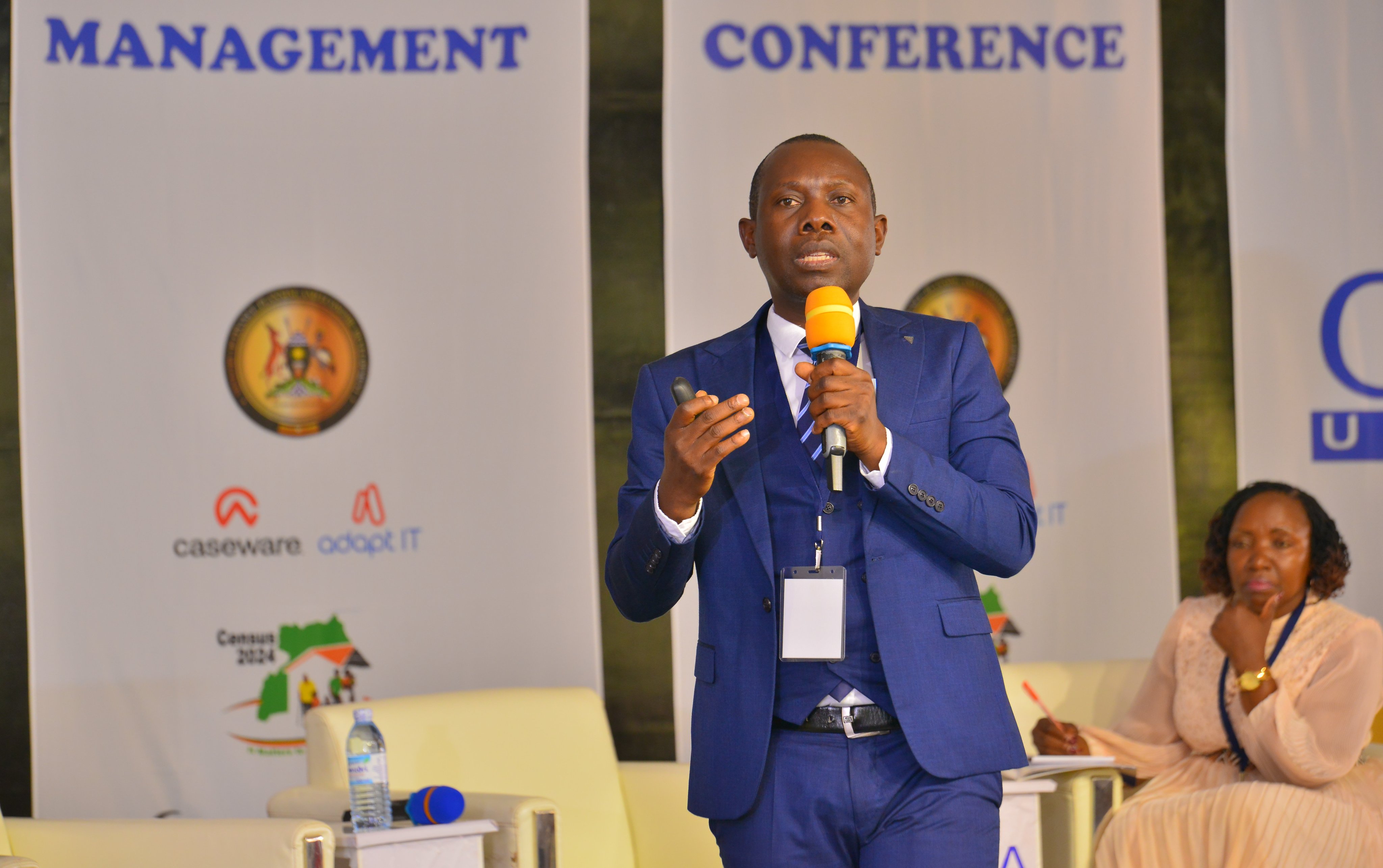By Joan Abaasa
Communications Officer -ICPAU
CPA Christopher Neil Makanga, Assistant Director of Audit at the Office of the Auditor General, delivered a comprehensive presentation on Stakeholder Involvement and Public Accountability in Municipal Local Governments (MLGs) during the 2nd Public Finance Management (PFM) Conference held at Source of the Nile Hotel, Jinja from 19-22 March, 2024.
The presentation underlined the critical role of efficient service delivery and emphasised the necessity of stakeholder engagement to optimise operations within MLGs. He stressed that stakeholder involvement goes beyond merely determining service areas for resource allocation and extends to publicly accounting for the use of allotted resources in service implementation.
"Stakeholders, both internal and external, play pivotal roles in an organisation's success or failure," remarked CPA Makanga, highlighting the significant contributions of both categories.
CPA Makanga outlined the key roles of various stakeholders in MLGs, including Parliament, Ministry of Finance, Ministry of Local Government, Mayor/Executive Committees/Councilors, Town Clerks/Heads of Departments, and other staff members. He also emphasised that every stakeholder group plays a vital role in overseeing, funding, and implementing policies essential for the smooth functioning of MLGs.
Additionally, he mentioned that Municipal Local Governments are tasked with providing a diverse array of services, spanning education, healthcare, public parks, water supply, road maintenance, and business licensing. CPA Makanga underscored the significance of identifying pivotal stakeholders and meeting their requirements to guarantee effective service provision.
Drawing from a study conducted across 92 Municipal Local Governments, CPA Makanga identified a positive correlation between stakeholder involvement and public accountability. He noted that enhanced stakeholder participation leads to improved resource utilization and accountability in service delivery.
However, the study also identified several limitations, such as inadequate communication, delays in addressing client concerns, and a lack of stakeholder participation in policy formation. To address these challenges, he proposed the development of government policies guiding stakeholder interaction and the establishment of avenues for community participation in decision-making processes.
In his closing remarks, CPA Makanga stressed the pivotal role of effective stakeholder management in MLG success. By prioritizing stakeholder involvement and addressing their concerns promptly, MLGs can enhance service delivery and accountability, thereby benefiting the communities they serve.





